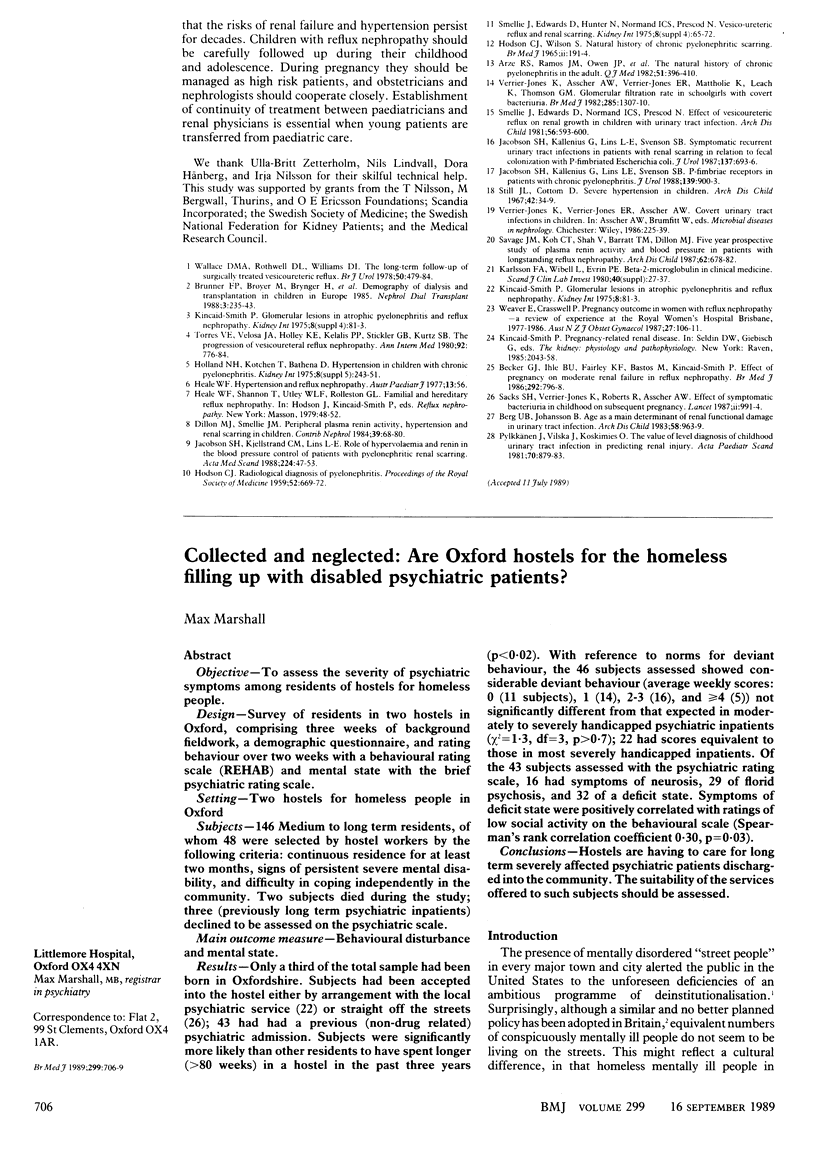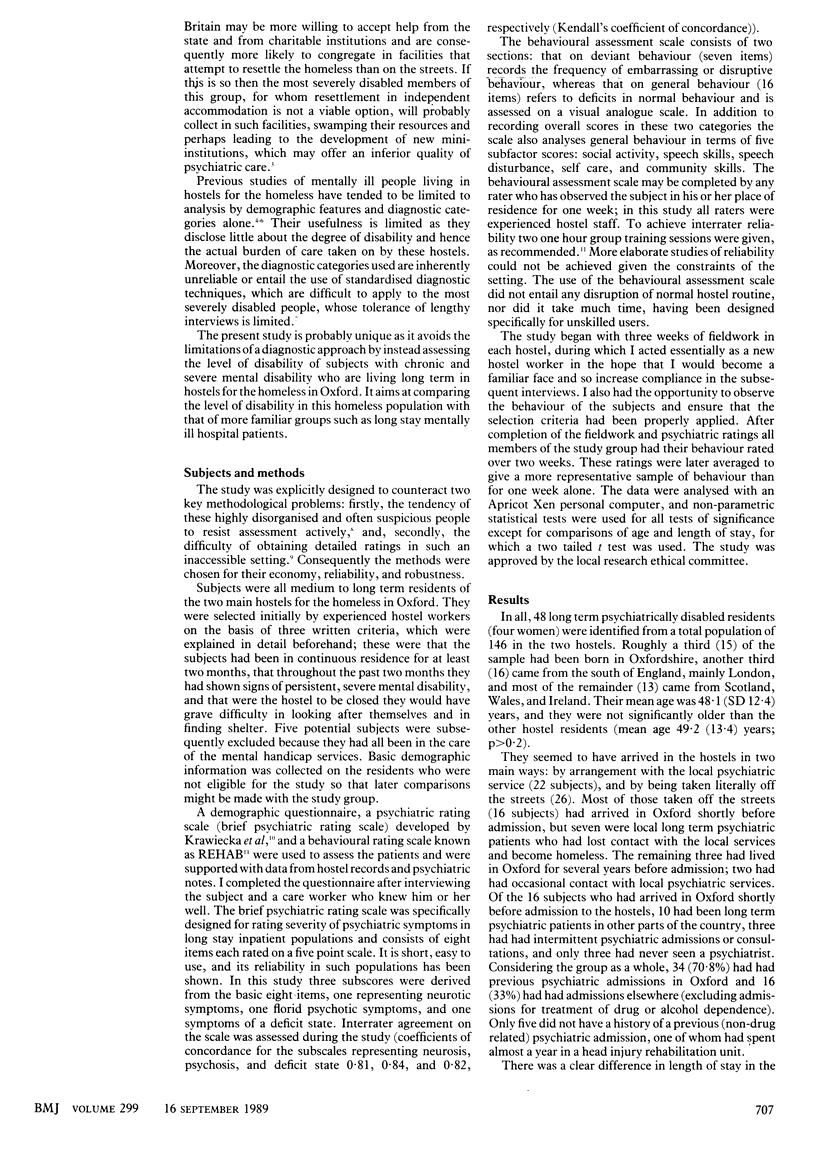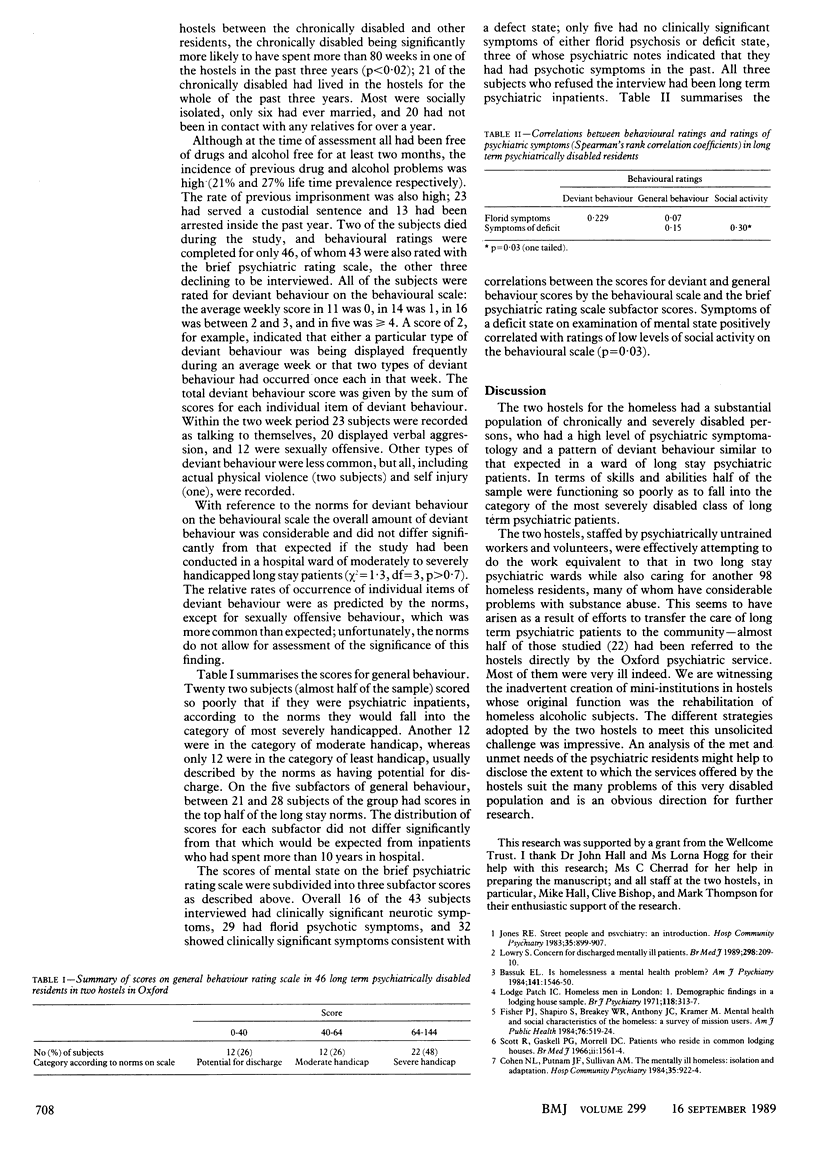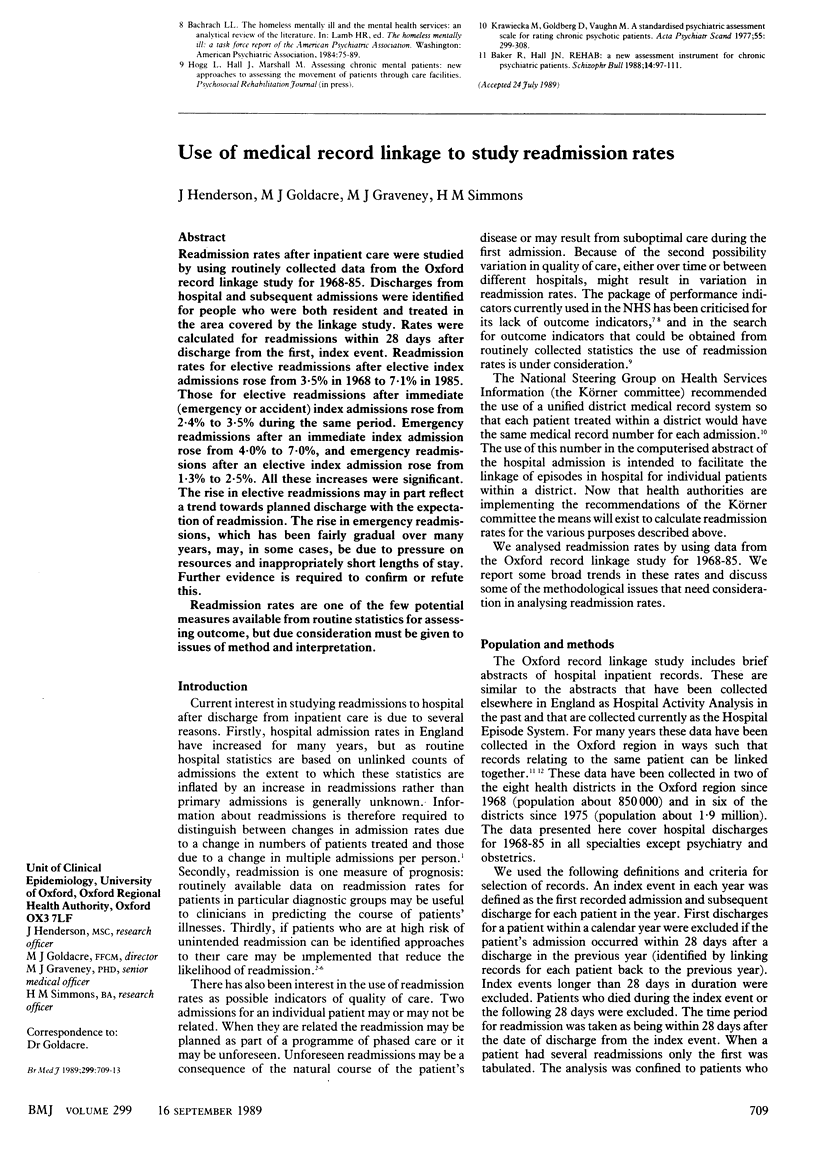Abstract
OBJECTIVE--To assess the severity of psychiatric symptoms among residents of hostels for homeless people. DESIGN--Survey of residents in two hostels in Oxford, comprising three weeks of background fieldwork, a demographic questionnaire, and rating behaviour over two weeks with a behavioural rating scale (REHAB) and mental state with the brief psychiatric rating scale. SETTING--Two hostels for homeless people in Oxford. SUBJECTS--146 Medium to long term residents, of whom 48 were selected by hostel workers by the following criteria: continuous residence for at least two months, signs of persistent severe mental disability, and difficulty in coping independently in the community. Two subjects died during the study; three (previously long term psychiatric inpatients) declined to be assessed on the psychiatric scale. MAIN OUTCOME MEASURE--Behavioural disturbance and mental state. RESULTS--Only a third of the total sample had been born in Oxfordshire. Subjects had been accepted into the hostel either by arrangement with the local psychiatric service (22) or straight off the streets (26); 43 had had a previous (non-drug related) psychiatric admission. Subjects were significantly more likely than other residents to have spent longer (greater than 80 weeks) in a hostel in the past three years (p less than 0.02). With reference to norms for deviant behaviour, the 46 subjects assessed showed considerable deviant behaviour (average weekly scores: 0 (11 subjects), 1 (14), 2-3 (16), and greater than or equal to 4 (5] not significantly different from that expected in moderately to severely handicapped psychiatric inpatients (chi 2 = 1.3, df = 3, p greater than 0.7); 22 had scores equivalent to those in most severely handicapped inpatients. Of the 43 subjects assessed with the psychiatric rating scale, 16 had symptoms of neurosis, 29 of florid psychosis, and 32 of a deficit state. Symptoms of deficit state were positively correlated with ratings of low social activity on the behavioural scale (Spearman's rank correlation coefficient 0.30, p = 0.03). CONCLUSIONS--Hostels are having to care for long term severely affected psychiatric patients discharged into the community. The suitability of the services offered to such subjects should be assessed.
Full text
PDF



Selected References
These references are in PubMed. This may not be the complete list of references from this article.
- Baker R., Hall J. N. REHAB: a new assessment instrument for chronic psychiatric patients. Schizophr Bull. 1988;14(1):97–111. doi: 10.1093/schbul/14.1.97. [DOI] [PubMed] [Google Scholar]
- Bassuk E. L., Rubin L., Lauriat A. Is homelessness a mental health problem? Am J Psychiatry. 1984 Dec;141(12):1546–1550. doi: 10.1176/ajp.141.12.1546. [DOI] [PubMed] [Google Scholar]
- Cohen N. L., Putnam J. F., Sullivan A. M. The mentally ill homeless: isolation and adaptation. Hosp Community Psychiatry. 1984 Sep;35(9):922–924. doi: 10.1176/ps.35.9.922. [DOI] [PubMed] [Google Scholar]
- Fischer P. J., Shapiro S., Breakey W. R., Anthony J. C., Kramer M. Mental health and social characteristics of the homeless: a survey of mission users. Am J Public Health. 1986 May;76(5):519–524. doi: 10.2105/ajph.76.5.519. [DOI] [PMC free article] [PubMed] [Google Scholar]
- Krawiecka M., Goldberg D., Vaughan M. A standardized psychiatric assessment scale for rating chronic psychotic patients. Acta Psychiatr Scand. 1977 Apr;55(4):299–308. doi: 10.1111/j.1600-0447.1977.tb00174.x. [DOI] [PubMed] [Google Scholar]
- Patch I. C. Homeless men in London. I. Demographic findings in a lodging house sample. Br J Psychiatry. 1971 Mar;118(544):313–317. doi: 10.1192/bjp.118.544.313. [DOI] [PubMed] [Google Scholar]
- Scott R., Gaskell P. G., Morrell D. C. Patients who reside in common lodging-houses. Br Med J. 1966 Dec 24;2(5529):1561–1564. doi: 10.1136/bmj.2.5529.1561. [DOI] [PMC free article] [PubMed] [Google Scholar]


